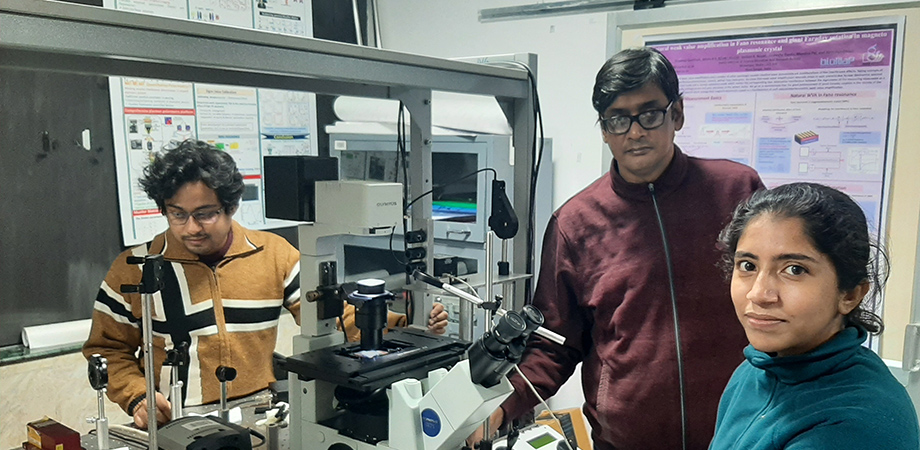Nirmalya Ghosh: The 2021 SPIE G.G. Stokes Award in Optical Polarization

The work of Nirmalya Ghosh of the Indian Institute of Science Education and Research (IISER) in Kolkata, has impacted multiple areas of optical sciences from quantum, space, and biomedical optics, to material sciences and fluorescence spectroscopy. Among his many achievements, he developed a comprehensive turbid medium polarimetry platform and explored its applications in biophotonics for probing biological and other complex systems; extended Mueller matrix algebra to fluorescence spectroscopy and demonstrated its potential as a novel tool for characterization of nano-and bio-materials; developed a light-scattering technique to extract and quantify nanometer-scale information on tissue morphology through multifractal tissue optical properties, a methodology which has shown considerable promise as a novel precancer biomarker identification and diagnostic tool; developed novel concepts of weak measurement in classical optics and introduced these concepts in the domain of plasmonics; and has made key contributions to studies on spin orbit interaction of light in various light-matter interactions which have generated new insights into polarization optical effects.
Proactively connected in the science community, Ghosh is a successful researcher, a supportively evaluative supervisor, and an acclaimed reviewer. He is highly effective both in terms of nurturing his students as well as working with colleagues across the global optics community. At IISER, Ghosh developed and runs BiONaP, an optics and photonics research laboratory with a particular focus on nano-optics and biophotonics. Ghosh has been an active supporter of the IISER-Kolkata SPIE Student Chapter from its inception, is a regular participant at SPIE conferences, and a strong supporter of his students' presence at those conferences.
"His fully recognized technical achievements aside, Nirmalya has succeeded where it is most important: in his home country, with the next generation of scientists," notes Martin Leahy, chair of Applied Physics at the National University of Ireland. "His calm, kind, inspiring, and encouraging demeanour was obvious as we moved around his lab in Kolkata on a recent professional visit. His diaspora is competent and ambitious and will be a potent force in driving the next generation of photonics education and technological development."
Meet the other 2021 SPIE Society Award winners.
Read more about Nirmalya Ghosh and the SPIE GG Stokes Award in Optical Polarization.



